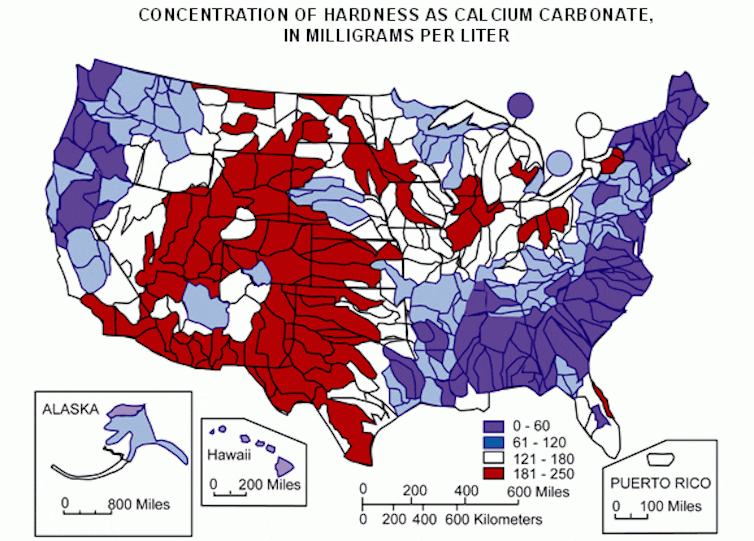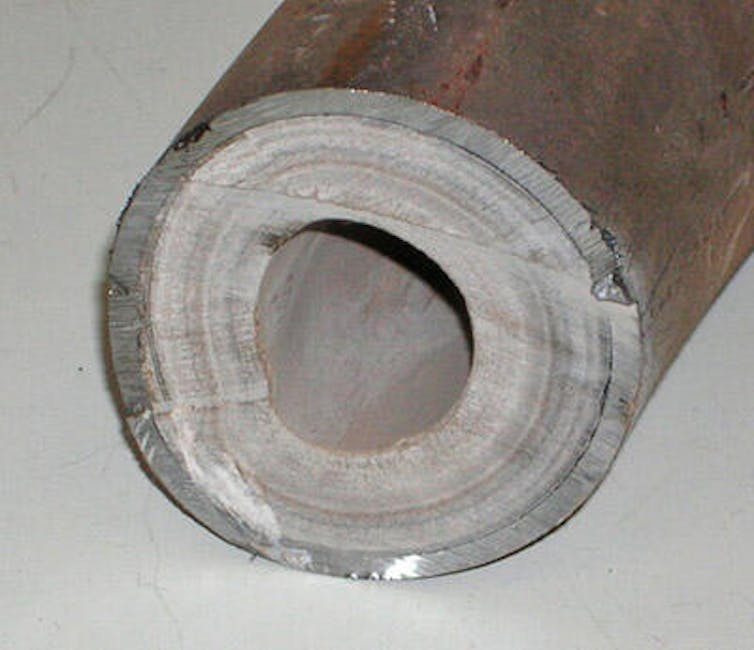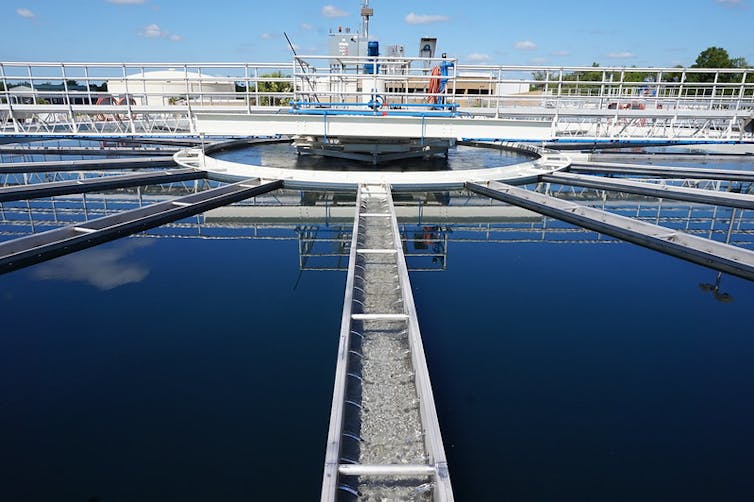When you turn on your faucet to get a glass of water or wash your face, you’re probably not thinking about what’s in your water – besides water. Depending on where you live and whether you have a water-softening system, your water might contain dissolved minerals such as calcium and magnesium. And these minerals can play a role in whether certain pollutants such as lead stay out of your water.
The more dissolved minerals, the “harder” your water. But is hard water actually good or bad for you?
As engineering researchers who study water quality, we have seen the effects – both good and bad – that soft and hard water can have on everything from plumbing systems to the human body.
What is hard water?
Hard water is water that contains dissolved minerals such as calcium, magnesium, iron and manganese. Soft water contains lower concentrations of these minerals.
Hardness is measured in terms of calcium carbonate, CaCO₃, which is used as a reference point for comparing different minerals.
The amount of these minerals in a city’s water supply varies by region. It depends on both where the water is coming from and how the water is treated.
Communities that source their water from wells rather than surface water such as lakes, streams, rivers and reservoirs often start with hard water pretreatment. As groundwater moves through the soil to a well, it picks up minerals. At the same time, areas where the types of rock and sediment are more prone to dissolving in water may have harder water.

Effects on water lines and distribution
Water that’s too hard or too soft could damage pipes and lead to health and aesthetic concerns.
Since hard water has a higher mineral concentration, minerals can build up in pipes, which leads to clogged pipes in homes and public water systems. Hardness also creates more deposits at higher temperatures, so hot water heaters are prone to mineral buildup. In areas with hard water, water heaters have a shorter life span.

But hard water can help, too. While minerals from hard water can clog pipes, a thin layer of mineral deposition in water lines can protect you from ingesting toxins that could seep in from the pipe itself. Water without any minerals can play a role in pipe corrosion, because without a thin, protective layer of minerals, the water may start to eat away at the pipes, releasing metals from the pipes into the water. Drinking this water might mean ingesting metals such as lead, copper and iron.
While water that is too soft or too hard can have different effects on water lines, there is more chemistry than just hardness that plays a role in pipe corrosion and clogging. So, there’s no specific hardness level that is a cause for concern. Water treatment plants take the appropriate measures to adjust for different hardness levels.

Effects on skin and hair
Whether you use hard or soft water to wash up can also have noticeable effects on your skin and hair.
Hard water is more likely to leave your skin dry. The minerals in hard water strip moisture from skin and create deposits that clog pores.
Hard water can also strip the hair of moisture, leaving it dry and coarse. Dry hair is more prone to frizz, tangles and breakage. Mineral deposits can also build up on the hair and scalp, clogging your hair follicles and leading to dandruff and slowed hair growth.
Many households have their own water-softening systems. A water-softening system may help hair and skin dryness and buildup. But many of these systems trap and replace calcium and magnesium with sodium, a mineral that does not contribute to water hardness, to lower overall hardness. Increasing the water’s sodium content may be a concern for anyone on a low-sodium diet.
Overall health benefits
Other than aesthetic and water heater concerns, drinking hard water is actually good for you and doesn’t come with any serious adverse side effects.
For example, the extra magnesium and calcium you consume in hard water may provide a gentle solution to digestive issues and constipation.
Also, researchers have found positive correlations between the hardness of drinking water and bone health. Since calcium is an essential mineral in bones, individuals in areas with drinking water that has more calcium may have higher bone mineral density and may be less prone to osteoporosis.
Researchers have also found that drinking hard water has been associated with a decrease in cardiovascular disease-related mortality. Magnesium helps regulate your cardiac muscles, while calcium keeps the sodium-potassium balance in your cardiac muscles in check, which they need to function.
Whether you have hard or soft water, don’t worry too much. Water treatment plants take appropriate measures to ensure safe water for the communities they support.
To learn more about the water hardness in your area, you can contact your local water treatment plant about its specific water treatment process. Private well owners can contact their state government to find out the testing recommendations for their area.

